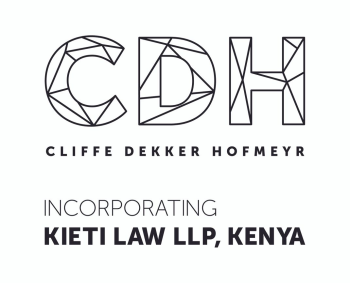On 12 April 2018 the Davis Tax Committee (DTC) issued a media statement announcing the publication of four additional final reports and the conclusion of its work based on its terms of reference.
The reports, released on the same day, were as follows:
- Final report on VAT for the Minister of Finance;
- Report on the efficiency of South Africa's corporate income tax system for the Minister of Finance (along with a separate note on territorial taxation);
- Report on the public benefit organisation and the tax system for the Minister of Finance; and
- Report on the feasibility of a wealth tax in South Africa for the Minister of Finance.
According to the media statement, the reports are based on the mandate of the DTC as per its terms of reference and their publication concludes the work of the committee, which began on 17 July 2013 when it was appointed by the minister of finance. According to the media statement, 27 March 2018 marked the final meeting of the DTC and the publication of the closing report on the work done by the Davis Tax Committee.
The closing report notes that the operating costs (excluding premises and secratariat costs borne by the South African Revenue Service (SARS)) of the DTC was R12,380,000 for the five years of its existence. In terms of the closing report, the DTC submitted 25 reports to the minister of finance, which have all been published on the DTC's website with the minister's approval. Using the terms of reference as its point of departure, the DTC established 12 sub-committees composed of members and ad hoc members to fulfil its mandate. The closing report sets out the progress made by each sub-committee.
Sub-committee progress and implementation of recommendations Among other things, the closing report sets out the extent to which the recommendations of various sub-committees had already been implemented. For example, the sub-committee on base erosion and profit shifting's recommendations for Section 6quin of the Income Tax Act 58 of 1962 to be repealed and for Section 10(1)(o)(ii) of the act to be reviewed were implemented by National Treasury and SARS accordingly.
Taxpayers should note, for example, that the amendment to Section 10(1)(o)(ii) will not come into effect until 1 March 2020. Further, pursuant to the work of the sub-committee on estate duty and capital gains tax implications, the minister of finance accepted one of the DTC's recommendations in the 2018 budget speech by announcing an increased estate duty rate of 25% that would apply to an amount in excess of a dutiable amount of R30 million in an estate. This amendment has applied since 1 March 2018, although the legislation giving effect thereto has yet to be passed by parliament.
Themes emerging from consultations The closing report states that the 12 sub-committees consulted widely and that a number of themes emerged from the DTC's consultations with various stakeholders. Some of the most interesting themes were as follows:
- The role of the tax system in South Africa must be considered in a holistic context (ie, its main mandate is to collect revenue for the state and it cannot be used to address all impediments to economic growth and job creation). This requires a coordinated, 'whole of government' approach in consultation with business and labour;
- Tax legislation has become too onerous and complicated and the associated tax compliance and reporting requirements are becoming too burdensome and expensive to comply with. There is a need for simplicity and certainty to encourage local and foreign direct investment;
- To what extent can the tax system contribute to behavioural changes that contribute to economic growth, employment creation, development and fiscal sustainability?; and
- Taxpayers need assurance and indications that their taxes are being spent prudently and invested in the country's best interests.
Challenges faced and concluding remarks The closing report also mentions some of the challenges faced by the DTC, including the political uncertainty resulting from the appointment of six different ministers of finance during the committee's existence.
In its conclusion, the closing report notes that the DTC and its sub-committees held 205 meetings and received 433 submissions in an effort to consult widely. It issued 23 media statements and held seven workshops to further engage with the public. The DTC also presented progress reports on two occasions to the Standing Committee on Finance in parliament.
Importantly, the closing report notes that – as mentioned in the terms of reference – "the Committee is advisory in nature, and will make recommendations to the Minister of Finance". It therefore remains to be seen whether the DTC's proposals will be implemented.
For further information on this topic please contact Louis Botha at Cliffe Dekker Hofmeyr by telephone (+27 115 621 000) or email ([email protected]). The Cliffe Dekker Hofmeyr website can be accessed at www.cliffedekkerhofmeyr.com.
This article was first published by the International Law Office, a premium online legal update service for major companies and law firms worldwide. Register for a free subscription.



